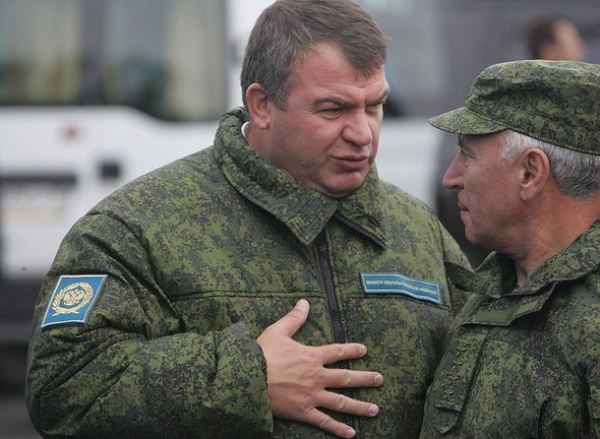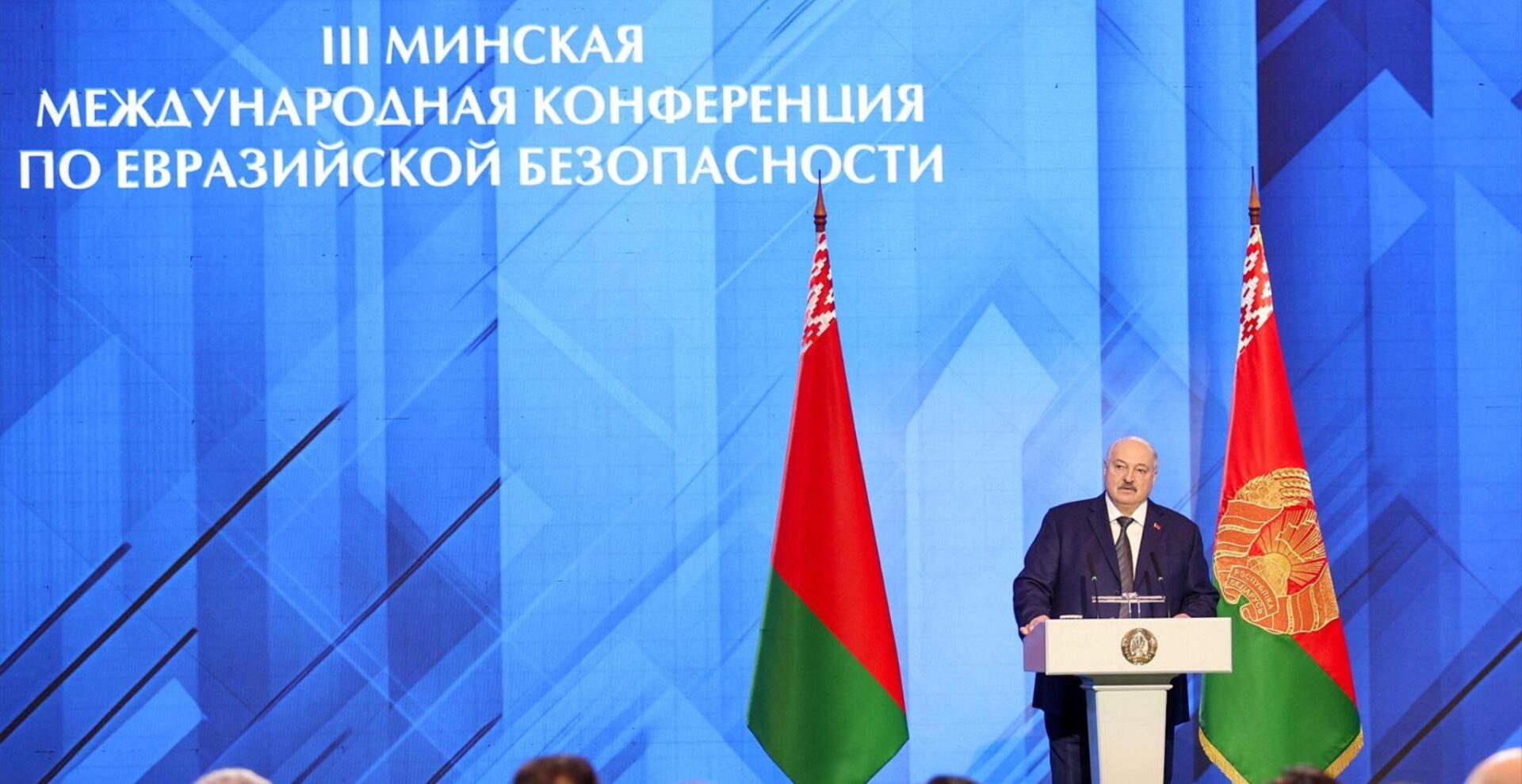
Defense Spending and Policy Discussions Are Splitting the Russian Elite
Defense Spending and Policy Discussions Are Splitting the Russian Elite
Last week, the public standing of one of President Vladimir Putin’s most powerful cohorts—Defense Minister Anatoly Serdyukov—was seriously undermined when Russia’s Investigation Committee (Slyedstvenny Kommitet Rossye—SKR) publicly accused the defense ministry–controlled holding company “Oboronservis” of corruption and of defrauding the federal budget of “over three billion rubles” ($100 million). In addition, the chief military prosecutor, Sergei Fridinsky, accused defense ministry officials of obstructing justice by not cooperating with the SKR investigation of “Oboronservis” (see EDM, October 25). Serdyukov (50), a businessman from St. Petersburg, entered the inner circle of power in Russia apparently through his second marriage with Julia—the daughter of Putin’s old-time associate and prime minister in 2007–2008, Victor Zubkov. Serdyukov made a spectacular government career, but now it is alleged that his marriage is in deep trouble, and this may have emboldened his enemies (www.newsru.com, October 29). Serdyukov has reportedly made many enemies in the top echelons of power in Moscow by being too independent, controlling too much budgetary funding and allegedly spending it on a whim. The procurement by the defense ministry of French-built helicopter-carrying Mistral-type assault ships, Israeli-made drones and Italian armored vehicles has been widely criticized in Russia (Itogi, October 29).
Serdyukov has pushed back—dismissing the SKR allegations as hearsay. Last week, Putin granted Serdyukov an audience, and the Kremlin press service reported that the president ordered the defense ministry to fully cooperate with the SKR investigation (Vedomosti, October 28). The meeting was important, since in the old Russian tradition Putin has faithfully followed, a disgraced boyar in the course of ouster and possible further internal exile or imprisonment is never granted an audience with the tsar. He must await judgment in fearful suspense of whether a minor official will come to demand the boyar’s immediate evacuation of his state dacha and office, and waiting for a reporter to ask him to comment on his downfall. Rumors of Serdukov’s imminent fall from grace have somewhat faded in Moscow after he met with Putin, but the legal attack has continued. The Kommersant daily, quoting sources connected to the investigation, reports Serdyukov may be personally involved in the “Oboronservis” case and may be subpoenaed “as a witness for the time being” (implying that charges may be pending). Reportedly, an arrest in the “Oboronservis” case has been of Ekaterina Smetanova—allegedly connected to Eugenia Vesilyeva (33), a former top defense ministry official closely associated with Serdyukov. Vasilyeva owns an apartment in a posh condominium in central Moscow where Serdyukov also has a flat. Last week, investigators searched Vasilyeva’s apartment and reportedly confiscated a bounty of jewelry, paintings and cash (Kommersant, November 1).
Serdyukov has been pushing a radical military reform since 2008 in an attempt to modernize the Russian armed forces still dwelling in the age of the Cold War. Serdukov’s reform efforts have been only partially successful at best and have encountered widespread opposition (see EDM, October 30). Top military officials in Moscow, both active service and retired, have been telling Jamestown they sincerely hope Serdyukov will soon be ousted and his reforms redrawn.
At recent parliamentary hearings organized by the Duma defense committee chairman, Admiral (retired) Vladimir Komoyedov (former Black Sea commander), Serdyukov’s military reform was angrily rebuked as an anti-Russian subversion, “organized by the enemies of Russia.” According to General (retired) Anatoly Khrulev, who as the commander of the 58th army was wounded in August 2008 when he personally led the Russian troops invading Georgia, “in 2008, we were still capable of something,” so the “enemies” (implying the United States) inspired Serdyukov’s creation of a “new look” military to “fully destroy the military.” Former Naval Chief of Staff Admiral (retired) Valentine Selivanov implied that “a foreign government” has decided that Russia’s potential enemies are “terrorists and tribal pirates,” while the fleet has been depleted of ships and cannot confront “enemy aircraft carrier groups.” Russia is allegedly not ready to counter the US or Chinese military, its weaponry is old and few, its military manpower is depleted, its conscripts are badly trained, and its contract solders do not want to fight, according to Khrulev. Komoyedov accused Washington of building a BMD system “aimed against us.” In return, Russia must build new ballistic missile–carrying nuclear submarines “to threaten the US” (Voyenno Promyshlennyy Kuryer, October 31).
The Duma has recently approved a three-year defense ministry budget that will increase spending from 1.9 trillion rubles ($67 billion) in 2012 to 3 trillion rubles ($100 billion) in 2015, reaching almost four percent of national GDP. Komoyedov has hailed this as a step in the right direction (RIA Novosti, October 17). The chief of the Russian navy, Admiral Viktor Chirkov, announced this week that according to existing plans “we will build five new ships a year” (RIA Novosti, October 31). The Pentagon’s current plans call for buying ten ships in 2013, and over the next 30 years the Navy’s ship purchases would average about 8.9 vessels a year. US presidential candidate Mitt Romney has promised to build as many as 15 ships a year for the US Navy (Bloomberg, October 22).
Russian military plans imply a rapid expansion of capabilities, primarily aimed to counter the United States on land, at sea, in the air and in space. But for a sizable portion of the Russian military establishment and military industry, this is apparently too little too late. At the same time, the massive expansion of defense and national security spending is severely criticized by influential officials in the financial and economic departments of government. According to Deputy Economics Minister Andrei Klepach, to stimulate the economy, a 1.5-percent-of-GDP budgetary deficit must be maintained through 2015, defense spending must be curtailed, and money diverted into building roads and other infrastructure projects (Kommersant, October 10).
Serdyukov is between a rock and a hard place: accused at the same time of spending too little, too much, spending wrongly and misappropriating. Putin’s dream of recreating Russian military greatness that Serdyukov has been tasked to fulfill is causing serious tensions in the ruling civilian and military elite at a time when the regime is trying to consolidate against the menace of internal opposition protests and presumed external threats, coming from apparently all directions, though primarily from the West. Putin seems to want to keep Serdyukov as defense minister, but it is not clear for how long he will manage to.


